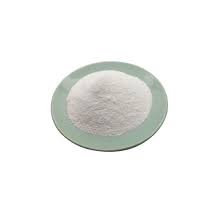
- +86-13363869198
- weimiaohb@126.com

Jul . 27, 2024 17:20 Back to list
Comparing the Effectiveness of Semaglutide and Liraglutide for Diabetes Management and Weight Loss
Is Semaglutide Better Than Liraglutide?
In the realm of diabetes treatment and weight management, semaglutide and liraglutide have emerged as pivotal players. Both belong to a class of medications known as GLP-1 receptor agonists, designed to improve glycemic control in type 2 diabetes and assist in weight loss. However, the question remains is semaglutide better than liraglutide? To answer this, we must explore their mechanisms of action, efficacy, side effects, and the overall patient experience.
Mechanism of Action
Both semaglutide and liraglutide mimic the action of the glucagon-like peptide-1 hormone, which plays a critical role in glucose metabolism. Upon administration, these medications enhance insulin secretion in response to meals, suppress glucagon release, and slow gastric emptying, which collectively contribute to lower blood glucose levels. However, semaglutide has a longer half-life, allowing for once-weekly dosing compared to liraglutide’s daily administration. This significant difference in dosing convenience can greatly influence patient adherence to treatment.
Efficacy
Clinical trials suggest that semaglutide may outshine liraglutide in terms of efficacy. For instance, trials have shown that semaglutide can lead to greater reductions in HbA1c levels—a critical marker for long-term blood glucose control—compared to liraglutide. Moreover, semaglutide has shown remarkable results in weight loss, with participants losing an average of 14-15% of their body weight, compared to about 6-8% with liraglutide. This heightened efficacy in both blood sugar control and weight management positions semaglutide as a potentially more effective option for patients struggling with obesity-related type 2 diabetes.
is semaglutide better than liraglutide

Side Effects
When considering any medication, understanding the potential side effects is crucial. Both semaglutide and liraglutide share similar side effects, including gastrointestinal disturbances such as nausea, vomiting, diarrhea, and constipation. However, some studies indicate that semaglutide may be associated with a higher incidence of gastrointestinal issues during the initial phase of treatment, although these typically decrease over time. Patients may also experience more serious side effects, such as pancreatitis or thyroid tumors, although these occurrences are rare. It is essential for healthcare providers to discuss these risks with patients when considering treatment options.
Patient Experience and Satisfaction
Patient experience is a critical aspect in determining the better option between semaglutide and liraglutide. Due to its less frequent dosing, many patients find semaglutide more convenient and easier to incorporate into their routine. Enhanced adherence to treatment regimens often translates to better overall health outcomes. Furthermore, the potential for greater weight loss with semaglutide can significantly improve patients' quality of life, leading to increased satisfaction with their treatment plan.
Conclusion
In the comparison between semaglutide and liraglutide, there are compelling reasons to consider semaglutide as the superior option for many patients. Its improved efficacy in glycemic control and weight loss, combined with the convenience of weekly dosing, makes it a more attractive choice. However, each patient’s individual circumstances, preferences, and health profiles should guide treatment decisions. As always, it is crucial for patients to have open discussions with their healthcare providers to determine the most appropriate and effective treatment plan for their specific needs. Ultimately, whether semaglutide is better may depend on the unique goals and experiences of each patient.
-
AI-Optimized CAS: 79099-07-3 Factories for High Yield
NewsAug.01,2025
-
Premium CAS 1451-83-8 Factory with GPT-4 Turbo | AI-Optimized
NewsJul.31,2025
-
Pharmaceutical Intermediates - AI-Optimized Synthesis & Purity
NewsJul.31,2025
-
Top CAS: 79099-07-3 Factories & Wholesale Supplier from China
NewsJul.30,2025
-
High-Quality GS-441524 for White Liquid Type Factories & Suppliers
NewsJul.29,2025
-
High-Quality Pharmaceutical Intermediates for Sale – Reliable Supply
NewsJul.29,2025